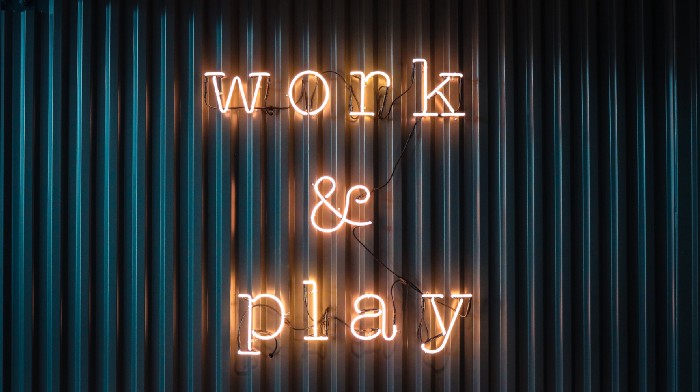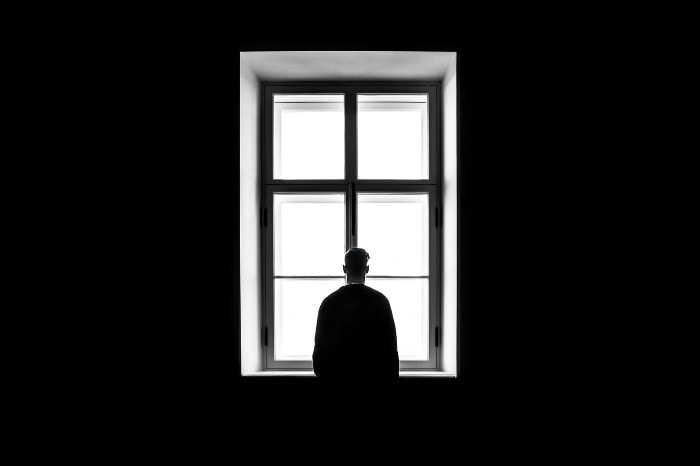Under certain conditions boredom can be full of desires, frustrations and possibilities — Henri Lefebvre Boredom is a cultural phenomenon with philosophical significance. No matter where in the world or when in history, we have all experienced boredom at some point and to some degree. Boredom feels like an elongation of time and contraction of space; as if time slows down and stretches into unobtainable horizons, grounding us firmly where we are, unable to move from the here and now. It can be quite a lonely experience; one that removes our sense of control or ability to change the situation. However, boredom can be harnessed in a liberating way. Being alone can provide us with the solace needed to inspire creativity. A quiet from the chaos opens up a world of possibility. It is this dynamic between a push (away from existential despair) and pull (towards finding meaning) that makes boredom a fascinating, paradoxical human truth worth exploring further. A Plague of Modernity Kierkegaard distinguishes between boredom and idleness. Boredom is an emptiness; an absence of meaning, but not absent of stimulation. It is possible to be both busy and bored simultaneously. Idleness, on the other hand, creates solitude and resourcefulness. Often, we keep busy to distract ourselves from truly living, or prevent ourselves from making genuine progress and change. Being idle can help us re-orient ourselves; to pause and reflect. Michael Gardiner (2012), in his exploration of Henri Lefebvre’s account of modernity, understands boredom to be a touchstone through which we grasp “wider anxieties”, “socio-cultural changes”, and “subjective crises” in modern times. Orrin Klapp (1986) explains how a condition of contemporary times is this combination of information overload and an absence of stimuli. This reduces the value and meaning of the things we do in fact have access to, and the activities we participate in. As Klapp puts it, resonance and variety are replaced by redundancy and noise. This generates the possibility for crisis, chaos, and concern. A Catalyst for Change We can find meaning and significance in seemingly boring things. Boring objects and activities are embedded in larger systems of operation and meaning-making. Without the boring, how would we measure excitement? How would we judge purpose? How would we find meaning? We cannot have one without the other. In fact, if we shift our understanding of boredom, we might even come to view it as a privilege. How fortunate are those who have the luxury of time? Time with which they can let their hands grow idle, their minds still, and their surroundings calm. Surely it is a privilege to situate ourselves firmly in time. However, it is not that simple. There are many faces to boredom: some que privilege, others are problematic.
A Paradox at Work Gary Fine (1990) states that all work is temporally structured. Our experience of work shapes our use of time, our behavioural and emotional responses, and how we orient ourselves in relation to the work. Similarly, Clark Molstad (1986) explored the reasons behind people choosing to take on boring jobs, rather than more stimulating work. What Molstad found was that ‘boring’ meant ‘safe’. Repetitive tasks are a way of avoiding situations where responsibility exceeds control. Taking this further, Cynthia Fisher (1993) traced the sources of boredom to:
With this in mind, we can identify the role, the source, and the outcome of boredom in our own work environments. Whether we are of the view that the pandemic has disrupted our ways of working, or that it has revealed a broken system that has long-existed, we could agree that the world of work will never again be the same. How can we return to the usual 9–5 after experiencing the flexibility of invisible and anonymous work? How can we return to a distracting and demanding open-plan office when we have immersed ourselves in the freedom of working from home? How can we return to a barely survivable income when the world stopped and our services were deemed essential to humanity’s survival? In these in-between times, boredom feels safe; familiar and predictable. However, boredom also feels suffocating, limiting, and powerless. More people might choose seemingly boring jobs for the ritual and routine it offers, or they might venture out of their comfort zone and take on exciting challenges so that they may never again have boredom forced upon them. My hope for individuals and organisations is that, with multiple perspectives on the multifaceted expressions and experiences of boredom, we might come to appreciate the global pause we find ourselves in, or even simply the quieter moments in our everyday lives. For it is in these times and in these moments that curiosity is fostered, creativity is nurtured, and courage is born. This article was first published on Medium
0 Comments
Leave a Reply. |
MARGUERITE COETZEE
ANTHROPOLOGIST | ARTIST | FUTURIST CATEGORIES
All
|



 RSS Feed
RSS Feed
